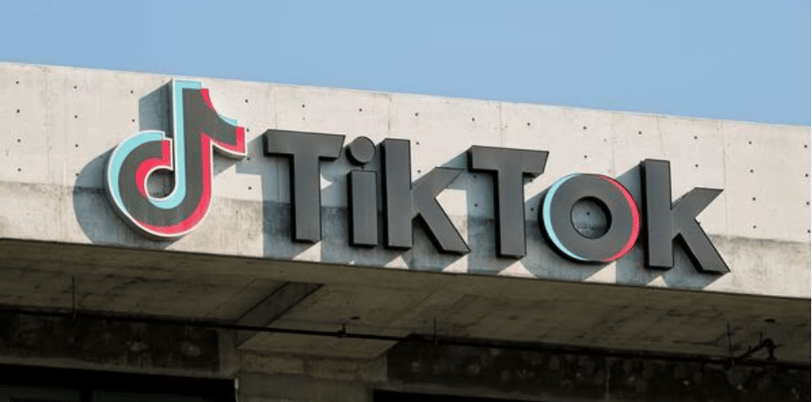TikTok Under Threat: The Trump Administration's Bid for Control
Recent discussions surrounding TikTok’s ownership have gained significant traction, particularly focusing on a potential deal that would see 50% U.S. ownership of the popular social media platform.
TECH INSIGHTS
Runny Fisher
1/20/20255 min read


The Background of TikTok and Its Ownership
TikTok, a short-form video-sharing platform, was launched in September 2016 by the Chinese tech company ByteDance. Originally branded as Douyin in China, TikTok was introduced to international markets in 2017 following ByteDance's acquisition of Musical.ly, an American social media app. This strategic move facilitated a rapid integration of user bases and technology, propelling TikTok into the global spotlight. The app's popularity swiftly soared, especially among younger demographics, as it offered an innovative format for content creation and consumption.
ByteDance, founded in 2012 by Zhang Yiming, has become one of the world’s most valuable startups. Although TikTok operates under a relatively independent brand, concerns arise regarding its ownership and potential connections to the Chinese government. The structure of ByteDance enables the centralization of data, leading to speculation about the Chinese Communist Party's ability to access user information stored on TikTok’s servers. This relationship has raised alarms focusing on data privacy and national security, prompting scrutiny from various governments, particularly in the United States.
The Trump administration's apprehension towards TikTok intensified as allegations surged around user data potentially being exploited by the Chinese government for espionage. In 2020, the administration issued executive orders aimed at effectively banning the app unless it were to be sold to an American company. This stance aligned with broader concerns about technological sovereignty and digital privacy, which have implications for both domestic and international relations. These developments are instrumental in understanding the evolving discourse surrounding TikTok, as they emphasize the intersection of technology, data governance, and geopolitical tensions. As tensions persisted, the implications of ByteDance's ownership and its potential impact on TikTok continued to dominate discussions in the political landscape.
Threats and Legal Challenges Faced by TikTok
The Trump administration's stance on TikTok has introduced a myriad of threats and substantial legal challenges for the popular social media platform. One of the most significant actions taken was the issuance of executive orders that argue the app poses a national security risk due to its Chinese ownership. These orders have called for TikTok's parent company, ByteDance, to divest its U.S. operations, thereby presenting a formidable challenge to its continued existence in the American market.
Furthermore, the executive orders outlined a timeline that could lead to a complete ban on TikTok should the app fail to comply with the divestiture demands. The potential for a ban raises concerns among users and stakeholders, as millions of Americans rely on the platform for entertainment, communication, and even business opportunities. The prospect of non-compliance could result in significant corporate and legal repercussions, including hefty fines or potential criminal charges for the executives involved.
This hostile environment has left TikTok navigating an increasingly complex legal landscape, where it must balance compliance with U.S. regulations against its operational integrity. The uncertainty surrounding these legal challenges has stirred reactions from users. Many express frustration over the perceived disproportionate scrutiny faced by TikTok, particularly relative to other social media platforms. Stakeholders, including content creators and advertisers, have also voiced concerns regarding the potential loss of influence and revenue should the app be banned or forcefully restructured.
Additionally, a significant level of discourse surrounding privacy policies has emerged, with users worried about data security and user surveillance. As the TikTok controversy unfolds, the sustained legal pressure from the Trump administration undoubtedly impacts the platform's operations, leading to possible adjustments in strategy and functioning within the U.S. marketplace. The outcome of these challenges will shape not only the future of TikTok but the broader landscape of international tech companies operating in the United States.
The Proposed Deal: 50% U.S. Ownership of TikTok
Recent discussions surrounding TikTok’s ownership have gained significant traction, particularly focusing on a potential deal that would see 50% U.S. ownership of the popular social media platform. This proposed transaction emerges against a backdrop of heightened national security concerns regarding data privacy and the handling of user information outside the United States. The Trump Administration's actions regarding TikTok reflect broader apprehensions about foreign influence and the safeguarding of American users' data.
The motivation behind this 50% ownership structure is primarily rooted in national security. By transferring a considerable stake of TikTok to U.S. investors or companies, the aim is to mitigate risks related to data breaches, censorship, or any espionage activities that may arise from the platform’s original ownership by the Chinese company ByteDance. Stakeholders likely involved in this arrangement could include major American tech giants, as well as private equity firms eager to capitalize on the burgeoning short-form video market.
If this deal comes to fruition, significant changes to TikTok’s operational framework may unfold. Industry insiders speculate that U.S. oversight would not only influence data management practices but also introduce compliance with American regulations, fostering transparency in data handling. Furthermore, this shift could lead to enhanced innovations and collaborations within the U.S. tech landscape as TikTok seeks to align more closely with domestic regulatory standards.
Financial analysts express varying perspectives on the implications for all parties involved. While some view the deal as a necessary step for TikTok to secure its place in the U.S. market, others caution against the complexities of such ownership transitions and their potential impact on the platform’s brand identity. Overall, this proposed ownership arrangement has the potential to reshape not just TikTok but also the operational strategies of tech companies in the U.S.
Future Implications and Conclusions
The unfolding situation surrounding TikTok, particularly in the context of the Trump Administration's concerted efforts to exert control over the platform, poses significant ramifications for various stakeholders. Looking ahead, the long-term consequences for TikTok could be substantial, especially if the U.S. government implements stringent regulations or divests the platform from its Chinese parent company, ByteDance. Such developments may set a powerful precedent, reinforcing a narrative that foreign tech entities are vulnerabilities in the digital landscape of the United States.
For the U.S. technology sector, the challenges facing TikTok signal a complicated phase of digital governance, marked by potential fragmentation. Other tech companies may find themselves under heightened scrutiny and pressure to enhance transparency concerning their data practices. This heightened vigilance can lead to changes in the business models of these tech organizations, wherein they may need to balance innovation with regulatory compliance. The overarching question remains whether these regulations could stifle competition or promote a safer digital environment for users.
From an international relations perspective, the tensions surfaced by the TikTok debate might exacerbate the ongoing trade and technology conflicts between the United States and China. As nations navigate the intricacies of digital sovereignty and data privacy, the TikTok scenario illuminates the possibility of economic repercussions and an intensified competitive climate. The ideological debates concerning national security versus user autonomy may also compel other nations to reassess their own relationships with foreign tech companies. For TikTok users, the uncertainty surrounding the app's future could alter the experience on the platform—be it through potential changes in data privacy protocols or outright bans, leading to a significant reshaping of digital interaction.
In conclusion, the implications stemming from the TikTok controversy extend far beyond the app itself, affecting the tech industry, international alliances, and individual users. Observing how these dynamics evolve will offer crucial insights into the future of digital platforms, privacy policies, and the broader framework of global tech governance.
